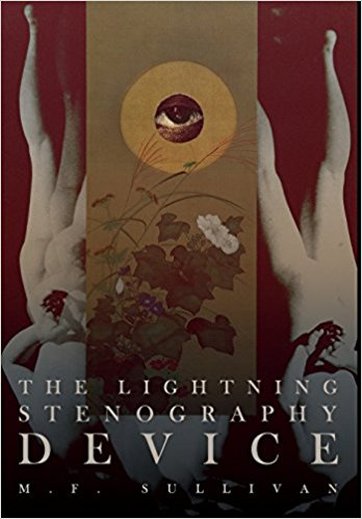 I’m going to just come out and say this upfront: this is a weird book. Absolutely gorgeous in terms of writing and its literary finesse, but the story is… odd. In short, “The Lightning Stenography Device” (or LSD for short, ha) is about a thought to text device (basically you think instead of typing, taking away all hesitation from getting words on the page) that has managed to write a story while a pair of writers was asleep. Which is cool! These stories somehow predict the future! Crazy, right? Except this sparks an insanely long, prose filled philosophical debate/discussion on who is doing the writing—basically a debate of religion and who, or what I suppose, is God. That debate takes up about half the book I’d say, and it’s interspersed between the 4(ish) characters we are introduced to via their own sections. These sections highlight someone’s experience of using the LSD and the “story” it tells before it ends with a head scratching epiphany that would be so incredibly beautiful and satisfying if it didn’t take so damn long to get to. This book is not going to be for everyone, in fact, it may not be for most people. There is no trigger warnings or overly brutal scenes (outside of a few but those are rather fleeting), and the language is mild in terms of profanity. But this book is nothing but purple prose that only hints at an interesting story on occasion. The author is a phenomenal writer, her use of language and subtly is just lovely, but it’s over use will leave a lot of people putting this book on the DNF pile. You have to be really dedicated to literary fiction and enjoy reading lovely words on a page first and foremost. You have to enjoy the philosophical debate on God because the core of the story doesn’t shine enough for that to solely keep a reader’s attention. The book is going to be boring AF for you, because it’s mostly just a group of intellectual writers talking about who wrote their stories while asleep. Honestly, I was hoping the author would have dropped Cassius and Enoch completely and just focused on Katherine and elaborate on her damaged family because that was, by far, more interesting. That and Felicity because that’s where the book is best, but it takes so long to get there, the reader has to wade through so much literary fluff, that most people simply will not get to the good parts.
The sad thing is, Felicity’s section was so rewarding! You get beautiful writing and more semblance of a plot and an actual story. Things start to happen as we venture forth into the fantasy section of the book! Where King’s and Queen’s and talking Swords and the underworld (known as Elysium) come together to form a wonderful metaphor for literally everything else in the book. Would the book have made sense if we just had Felicity’s section? Or that section came much sooner in the story? I’m not sure… probably not. Which, again, is really too bad, because that last section was the most gratifying. Literary fiction at its finest, truthfully! So why am I not rating this book higher? Because of the tedium it took to get to the end result. I pride myself in always finishing a book, but even this one tested my patience. I found myself caring less and less and getting more and more lost in the overly highbrow dialogue and redundant existential crisis that both Cassius and Katherine experience. I struggled to find what purpose Enoch had for, well, anything to be honest. I wanted to throttle Cassius for the second half of his section, and he felt so… fake for all of Katherine’s that he no longer felt like a real character to me. I wish Katherine had not succumbed to the same trap that her lover and Enoch had, because she felt too strong for that, but alas, she does and her fear feels all the more forced because of it. But the writing itself, swoon! So again, this book is weird, not for everyone, and exceptionally hard to rate. If you love literary fiction and just want to enjoy good writing that doesn’t need a heady plot, or you just want to expand your mind (I guess?) or just literary horizons, give this book a try. But remember: it’s a painfully slow read, but a beautiful one, especially for the last section of the book. But if none of this sounds like your cup of tea, then save yourself the time because you’ll end up not finishing it and that’s not fair to you, or the author. Personally, the lovely prose and last section were not enough to completely overcome the annoyance I was beginning to feel with the slowness of the book, the overly highbrow dialogue, and the lackluster plot for something that’s synopsis sounded so good! So while Sullivan’s prose is serious writing goals, the story, and therefore the book itself, is a 2.5 stars for me. Thank you to the author for providing me with a copy for review!
0 Comments
Leave a Reply. |
Click the book images to see them on Amazon!
Categories
All
|






 RSS Feed
RSS Feed



















